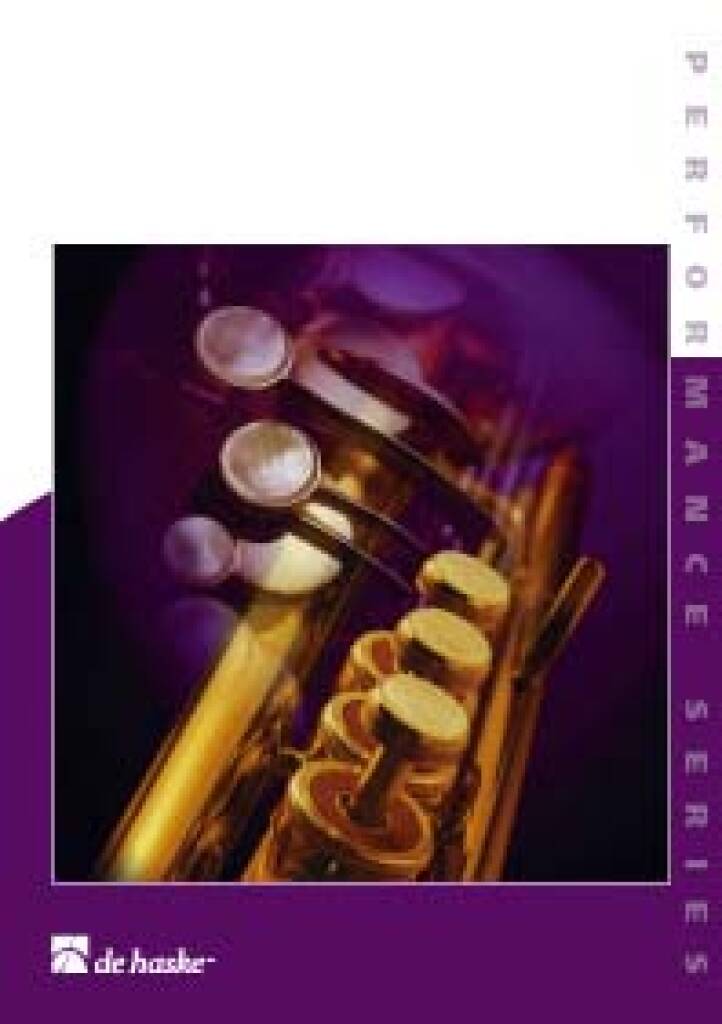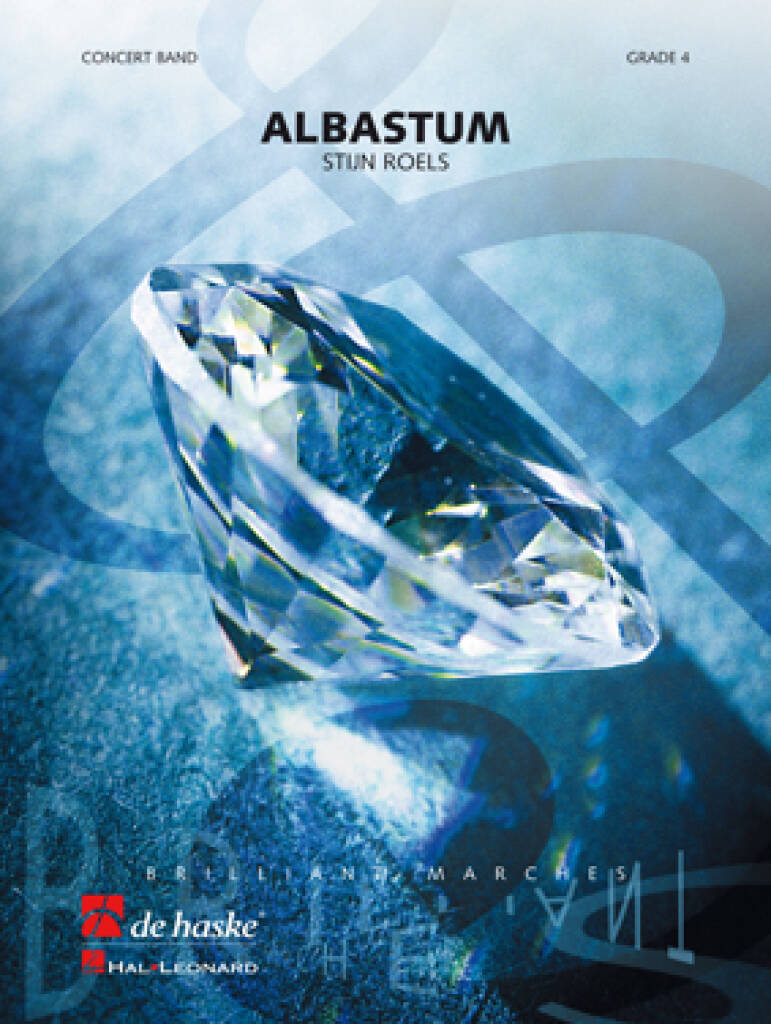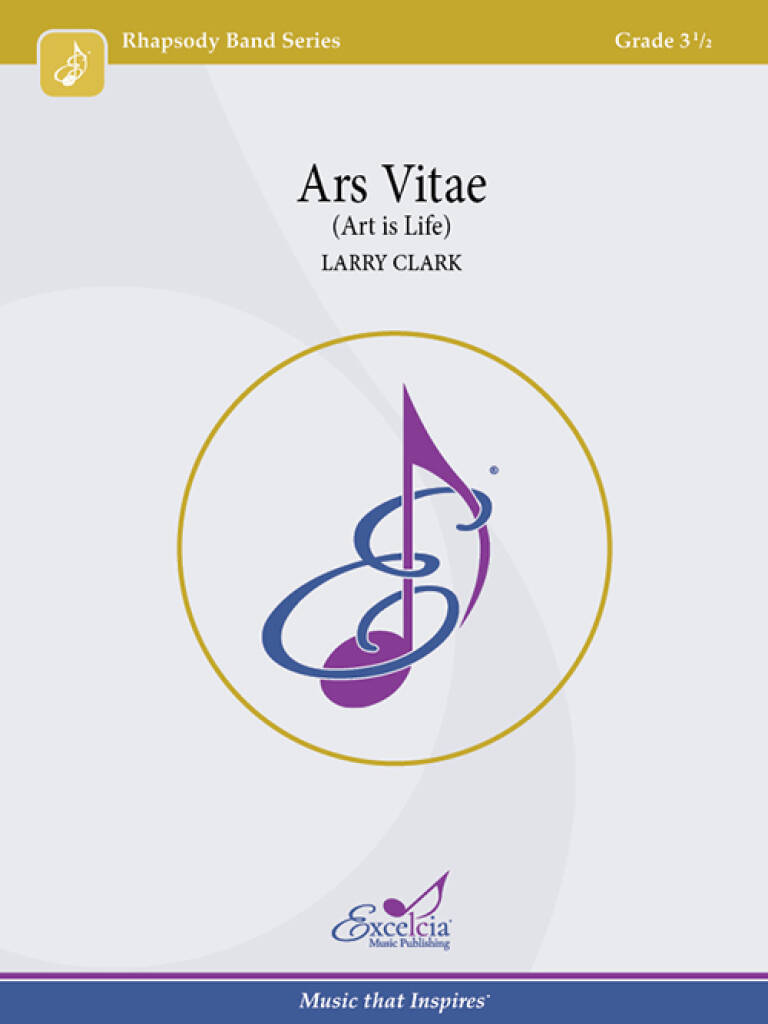Results
-
 £84.99
£84.99Moment Musical - Hayato Hirose
While composing this beautiful chorale, Hayato Hirose was inspired by the fond memory of the pre-marital days he spent with his beloved wife, Minako.The chorale starts with gorgeous woodwinds, after which the brass section is gradually added to enhance the atmosphere. The main theme is repeated and developed in several different keys in the middle section, followed by the recapitulation and the romantic coda that concludes the work. Moment Musical gives any concert programme a touch of warmth and tenderness.
Estimated dispatch 7-14 working days
-
 £102.99
£102.99Albastum - Stijn Roels
Albastum is a proud, stately concert march written in classic A-B-A form. It opens with a festive fanfare in the brass section, followed by a lively, bright theme, symbolising the joy of playing music together at each weekly rehearsal. Following a melodious trio, a counter theme develops and the march comes to an exciting close with a reprise of the original theme.
Estimated dispatch 7-14 working days
-
 £98.99
£98.99Ars Vitae - Larry Clark
Art is Life! This sentiment is abundant in this wonderful new work for concert band by Larry Clark. Full of flourish and thick brass writing harkening back to the days of Alfred Reed, Ars Vitae has everything you could want in a contest and festival work.
Estimated dispatch 7-14 working days
-
£53.95
Belle Journe - Rob Grice
This upbeat overture displays the flutes, oboes, and mallets in bell-like sounds contrasting with tutti brass and woodwinds. An optional trumpet solo is one of many features in the flowing lyrical section before the return of the theme and coda.
Estimated dispatch 7-14 working days
-
£45.95
Our Song Shall Rise - John Bacchus Dykes
Opening with the rich sounds of the woodwind choir, here is a magnificent setting of John B. Dykes' familiar hymn tune, Holy, Holy, Holy. Rich brass writing sets up the fanfare and key change to a dramatic tutti finale.
Estimated dispatch 7-14 working days
-
£73.50
Where Valor Proudly Sleeps - Robert Longfield
The Civil War has long been a source of inspiration for poets, artists, and composers. Robert Longfield offers an exciting new work as a musical salute to this dramatic time in American history. Based on original material from the 1800s, the piece is scored to include field drums, a 21 cannon volley, and a sensitive brass treatment of Taps featuring solo horn.
Estimated dispatch 7-14 working days
-
£87.50
The Awakening - Brian Balmages
This captivating composition was inspired by that 'breakthrough' moment when people start to realize there is much more to life than they originally thought. Opening with a woodwind ostinato, the horns introduce the melody thatbecomes the focus of the work. The pace continues through a beautiful lyrical section that soon explodes into a triumphant ending of brass under a flourishing woodwind ostinato. An ideal concert opener.
Estimated dispatch 7-14 working days
-
£98.50
Celestial Legend - David Shaffer
A delicate opening moves into a frenzy of woodwind activity over powerful brass fanfares. After a brief lyrical section, the piece resumes its fire, erupting in celebration as it catapults toward its heroic ending! Includes CD of performance.
Estimated dispatch 7-14 working days
-
£82.95
Loudoun Praises - Brian Balmages
This riveting new celebration pulls out all the stops, including dynamic brass fanfares, woodwind flourishes, and an exciting multimetered melody with a dancelike quality. The piece explores an ever-changing palette of colors and eventually has the original melody and multimetered sections collide in a dramatic conclusion. Exactly the kind of music you've come to expect from Brian Balmages! (6:00)
Estimated dispatch 7-14 working days
-
£119.00
Flight - Brian Balmages
Premiered at Carnegie Hall, this minimalistic fanfare celebrates SpaceShipOne, the first privately manned spacecraft to exceed an altitude of 62 miles twice within two weeks. The three sections explore the launch to space, reaching the apogee (weightlessness), and the return to the atmosphere. Punctuated by incredible brass fanfares and woodwind flourishes, the entire work is a bundle of energy from start to finish, and is the perfect opener for any concert. Monumental! (4:21)
Estimated dispatch 7-14 working days
